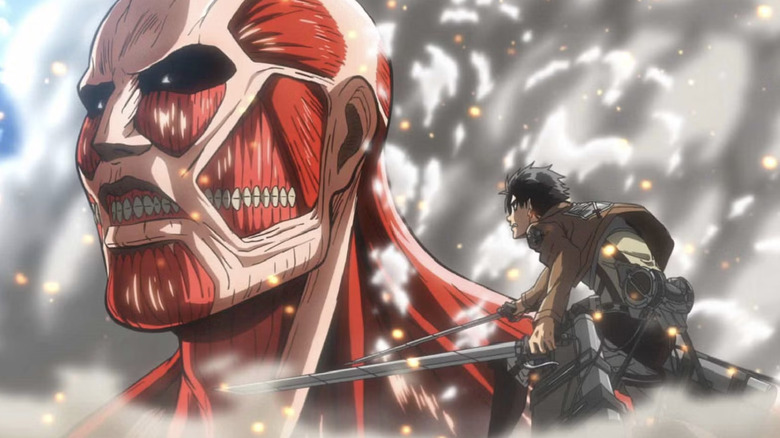
Crunchyroll
Hajime Isayama's "Attack on Titan" is one of the most popular anime/manga ever; its cultural impact is like a rumbling heard across the entire world. Well, almost the entire world.
In 2015, "Attack On Titan" was banned in China by the Chinese Ministry of Culture, along with other violent manga such as "Death Note" and "Claymore." The ministry was banning series that "include scenes of violence, pornography, terrorism, and crimes against public morality." "Attack on Titan" absolutely fits that bill.
The series is set in a post-apocalyptic world where most of humanity has been devoured by giants called Titans — resembling naked, ravenous, dead-eyed 20-foot-tall humans. "Attack on Titan" follows a young boy named Eren Yeager as he learns to fight the Titans with his friends. It's a violent series where no character is safe; Titans are disemboweled and humans are devoured in at least every other chapter.
"Attack on Titan" has also been banned in Russia for supposedly promoting violence among children. Malaysia has not banned the series, but the country has censored it. Specifically, manga panels are redrawn to give the Titans pants, even though they already have no genitals. This silly change makes them look more like The Incredible Hulk and less like terrifying cannibal monsters.
It's been alleged, though, that China's "Attack on Titan" ban isn't just above the violence but who that violence is directed at. "Attack on Titan" is very popular in Hong Kong, with critics saying the series' themes of struggling for freedom and the weak fighting back against the strong speak to Hong Kong's subordinate relationship with China. Hong Kong has a sizable independence movement, which since 2020 has been outlawed. A protester at a 2014 anti-Chinese protest in Hong Kong even used a puppet of the Colossal Titan as a prop (representing mainland China) to spread their message.
"Attack on Titan" is far from the only Japanese media which China has banned. These bans have been described as part of an ongoing effort to curb Japanese cultural influence in China. Elsewhere, the series' reception in South Korea reveals another reason why it would be just as controversial in China.
Attack On Titan's controversies stem from Japan's history with China and Korea
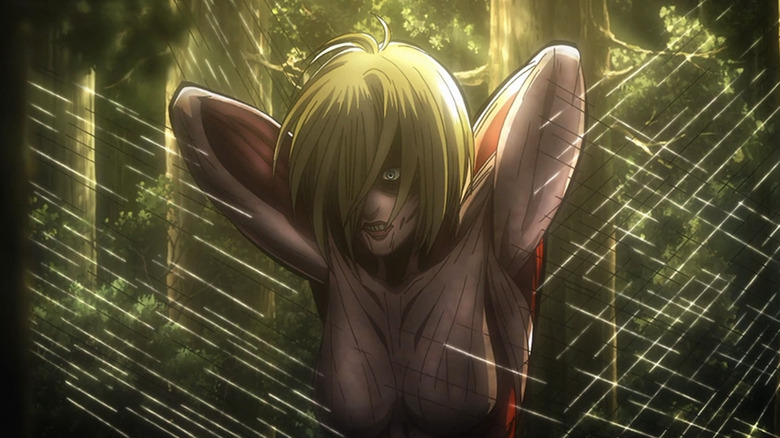
Crunchyroll
"Attack on Titan" has been a target for scrutiny and criticism in South Korea, where it has been accused of promoting right-wing Japanese politics. In 2018, Korean singer Kang Hye Won, a former member of the girl band IZ*One, came under criticism after publicly encouraging people to watch "Attack on Titan."
History lesson: Korea was colonized by Japan in 1910 and lived under its oppressive rule for 35 years. The Imperial Japanese army was notably brutal towards its neighbors, Korea included. (For one example, many Japanese soldiers abducted and enslaved Korean women, forcing them to become "comfort women.") Japan's mixed track record on apologizing for its imperial past, and on educating its children about their country's true history, means there's still enduring tension between Japan and Korea today.
You can see this lingering scar in Korean pop culture. Park Chan-wook's film "The Handmaiden" is set in Korea during Japanese rule. Based on Sarah Waters' novel "Fingersmith" (which is set in Victorian England), the film reworks the book's themes about the English class system into Japan's claimed cultural superiority over Korea. The recent horror film "Exhuma," which centers on Korean exorcists, also includes a ghost who dates back to the time of imperial Japanese rule. In that film, the ghosts of that era are literally still haunting Korea.
"Attack on Titan" comes in here. Isayama has confirmed that he modeled the character Dot Pixis, a heroic general, on Japanese General Akiyama Yoshifuru. While Yoshifuru has a positive reputation in Japan, Isayama's comments got him and "Attack on Titan" a lot of backlash for supposedly valorizing imperial Japan.
The final season of "Attack on Titan" shows these criticisms may not have been wrong. "Attack on Titan" totally upends its story at this point, revealing the main characters are not the last of humanity. They are Eldians, whose ancestors could turn into Titans and who brutally ruled the world for centuries. The last Eldian king, Fritz, was so disgusted by his people's history that he dissolved the empire, locking his people behind walls on Paradis Island, rewriting their memories, and making a vow that Eldians would never again fight a war. Now, the world is run by one of Eldia's former subjects — Marley — and they've been dumping the Titans on the island to keep the Eldians locked in.
And so all along,"Attack on Titan" has been an allegory for post-imperial Japan. The Eldians are the Japanese, a once powerful and monstrous empire now confined to an island. Marley embodies all of Imperial Japan's former victims, Korea and China included.
Attack On Titan is about post imperial Japan
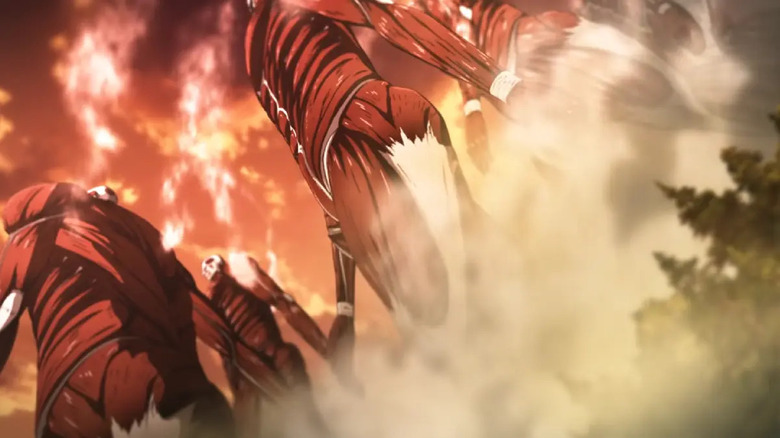
Crunchyroll
Some have called "Attack on Titan" antisemitic due to the imagery it uses to show modern Eldian oppression. In Marley, Eldians live in ghettos and wear identifying armbands, much like Jewish people living under early Nazi German rule were forced to.
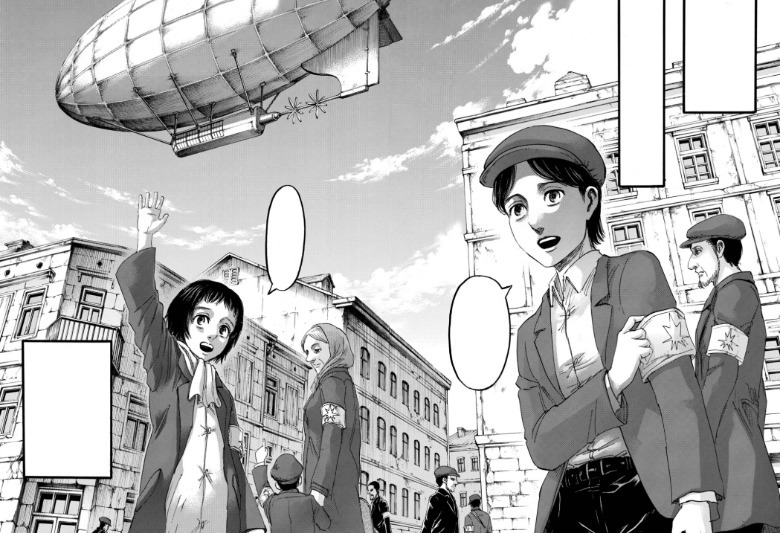
The Eldians' history also bears some disturbing resemblance to "secret Jewish cabal" conspiracy theories. Conversely, both the Eldians (a nation surrounded by enemies that demands military service from its citizens in the name of survival) and Marley (a once oppressed people who are now empowered and oppressing others) can be read as representing Israel. But I lean towards the "Paradis and the Eldians represent Japan" interpretations, because "Attack On Titan" was made in Japan, by a Japanese writer, and primarily for a Japanese audience. I also don't think Isayama is maliciously antisemitic, but the results are still insidious. He is appropriating imagery of the Holocaust not to make a statement about Jewish history or oppression, but to draw a line that ends with Japanese "oppression" by their former colonial subjects.
As Dan Olson of "Folding Ideas" put it, the message of "Attack on Titan" appears to be: "Koreans treat Japanese people the same as Nazis treated the Jews." Which is just blatantly untrue. None of Imperial Japan's former victims have "conquered" them in turn, and Japan is still a free, powerful, first-world country to this day. Nor are the Japanese considered second-class citizens by the Korean government or vice versa. (Romi Park, who voices Hange in the "Attack On Titan" anime, is even ethnically Korean.)
However, the reality "Attack on Titan" does represent is one that Japanese nationalists believe in. King Fritz's vow against war? It's a stand-in for Article 9 of the modern Japanese constitution, which prevents the country from using a military to settle international disputes. Japanese Nationalists consider this law a cultural castration — akin to how "Attack on Titan" describes the disempowered Eldians as living in a metaphorical bird cage. Former Japanese Prime Minister Shinzo Abe (of the right-wing Liberal Democratic party) even unsuccessfully attempted to revise Article 9 and lift the ban on war.
Eren's final plan of the Rumbling (unleashing a wave of Titans to crush all life beyond the Eldians' borders) is Japanese remilitarization. Murkying the waters of Isayama's politics even further, the Rumbling is shown as evil but also unavoidable due to the outside world's hatred of Eldians.
"Attack on Titan" is correct that hatred can be cyclical, but its allegory is so distorted beyond reality that it undermines that valuable message.

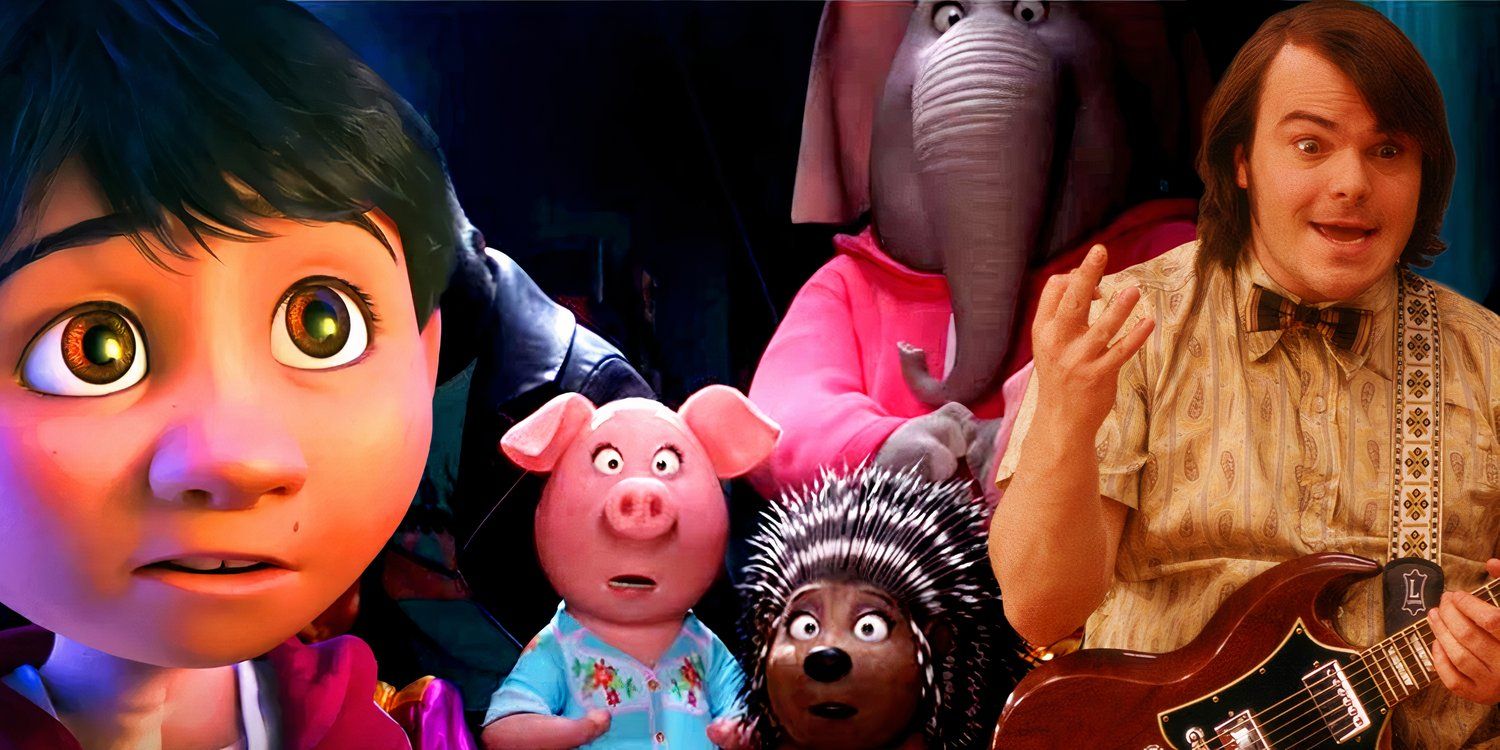
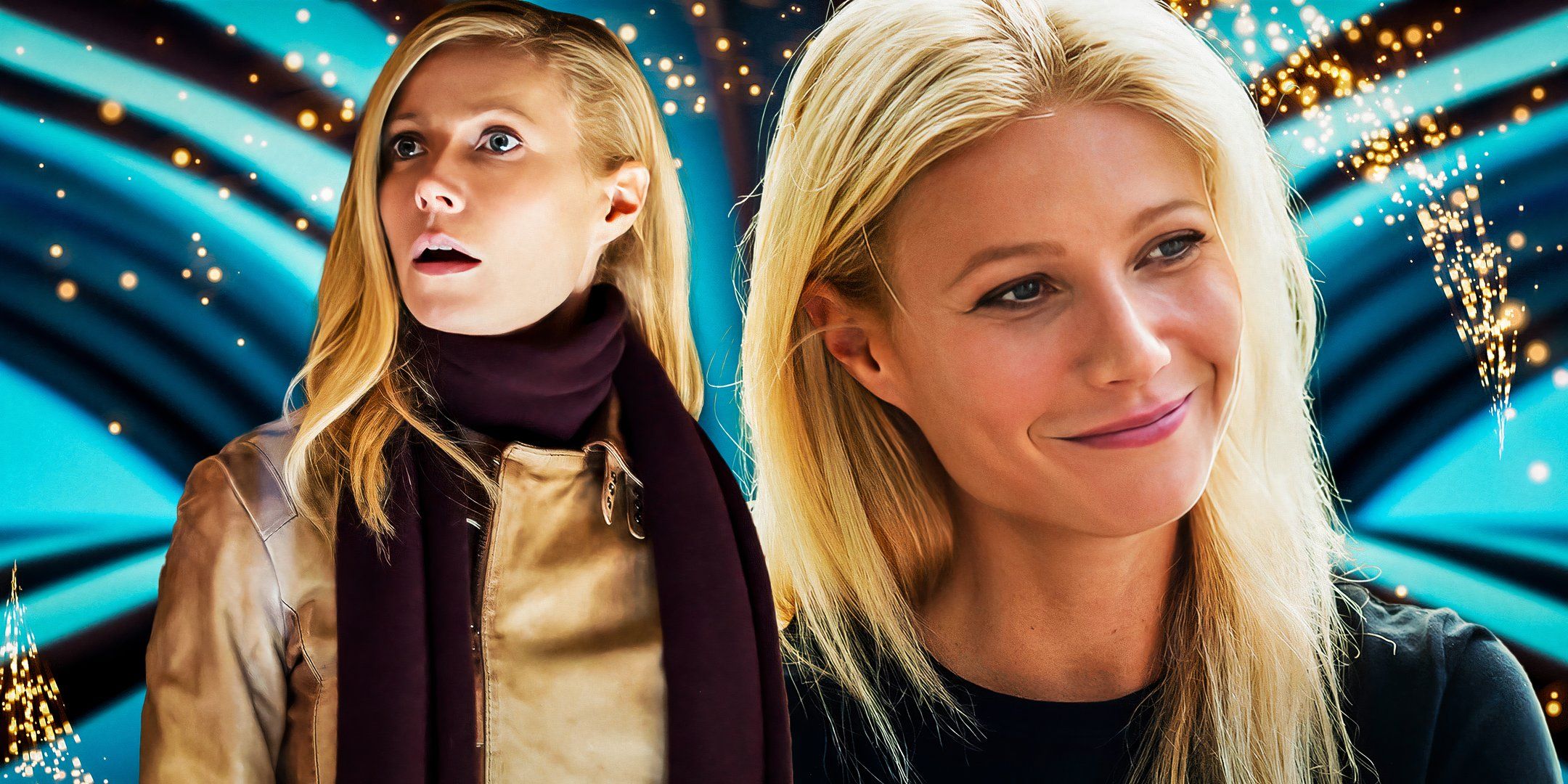
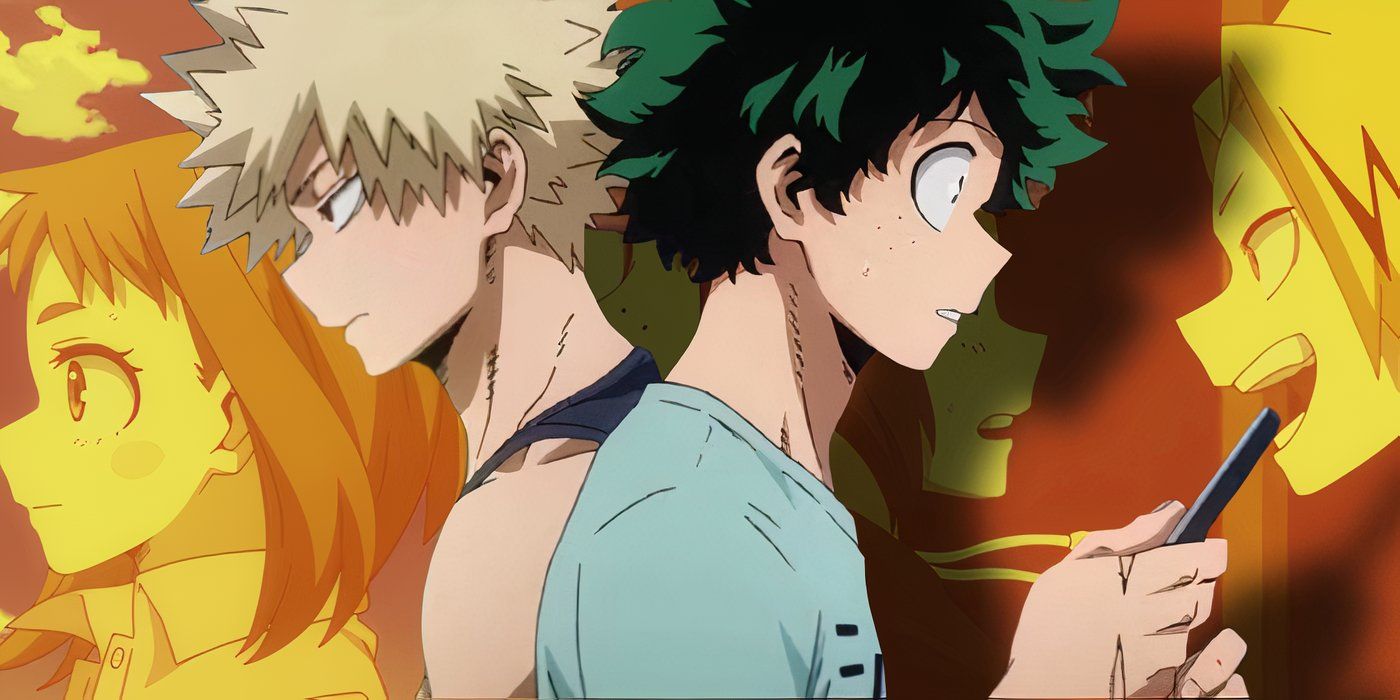





 English (US) ·
English (US) ·